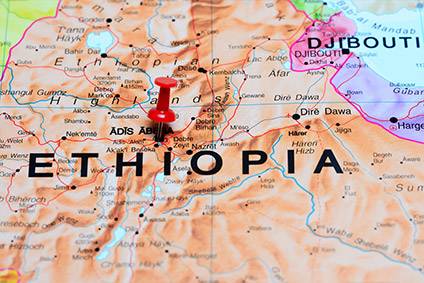
Dow says the three-year project in Ethiopia which was co-funded by Dow’s Business Impact Fund aimed to support sustainable chemical and waste management best practices along the textile value chain through education, training and advisory programmes.
“Ethiopia has the potential to become one of the leading textile and apparel hubs in Africa,” said project leader Maimuma Hussein, Dow Industrial Solutions. “Alongside this growth, there are opportunities to improve chemical management and prevent water pollution.”
Cicelia van Rooi, sales director, Dow Industrial Solutions Middle East, Africa & India and managing director, Dow Southern Africa (Pty) Ltd, adds: “We believe that through industry collaboration and best practice knowledge sharing we can support the textile value chain in implementing more sustainable chemical and waste management practices and make a positive social, environmental, and economic impact in Ethiopia.”
The scope of the project was twofold, involving academia and industry stakeholders. First, the project team worked with the Ethiopian Institute of Textile and Fashion Technology (EiTEX), part of the Bahir Dar University, to implement a technical training programme for lecturers and develop a new Chemical Management curriculum for undergraduate students. The Ministry of Education in Ethiopia approved the curriculum and adopted it as a national programme of studies.
The second project pillar focused on building awareness and capabilities of factory management and workers across the textile supply chain to implement and maintain an effective sustainable chemical management system based on industry best-practice guidelines from ZDHC. To enable a continued and cost-effective support to local businesses and industry professionals, sustainable chemical management consultancy capabilities were set-up through a network of trained local consultants.
These companies are now listed as ZDHC Approved Training Providers and can provide the official ZDHC training programmes to the Ethiopian markets.
The Dow Ethiopia project established sustainable structures for training in the environmentally and ecologically responsible disposal of chemicals and waste. The first 100 university students already completed the e-learning curriculum, and managers and operators from 20 textile factories were trained and kick-started the implementation of improved chemical management system processes.
As the project ends, the network of seven qualified chemical management consultants will continue to support businesses and industry professionals with ongoing training and on-site consultancy. All materials developed in the project will remain available to educational institutions for their further use.
“We gladly worked with Dow and GIZ on this project as it directly supports our ‘Roadmap to Zero Programme,’ aimed at leading the fashion industry to eliminate harmful chemicals from its global supply chain by building the foundation for more sustainable manufacturing,” said Klaas Nuttbohm, Implementation Director of ZDHC Foundation. “Working together with local stakeholders paved the way to improved sustainable chemical and waste management practices being implemented in
Ethiopia.”


